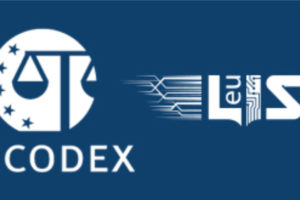eu-LISA to Extend its Portfolio with a New Large-Scale IT System

The Council of the EU approved a general approach on the regulation on cross-border judicial tool e-CODEX, which foresees handing over its operational management to eu-LISA, in order to provide a sustainable, long-term legal framework for the system.
e-CODEX – which aims to improve the efficiency of cross-border communication between European judicial authorities and facilitate access to justice for citizens and businesses – has been developed by a consortium of Member States, who are in charge of its management until 2024.
The draft regulation introduces provisions protecting the independence of the judiciary and details the governance and management structure to be implemented within eu-LISA.
The decision was taken during the Justice and Home Affairs Council meeting taking place 7-8 June 2021. "The COVID-19 pandemic has put the spotlight on the need to, among others, speed up the digitalisation and interoperability of our justice systems. Providing our judicial authorities with a sustainable, secure system to communicate in cross-border procedures is an important step in this direction", said Francisca Van Dunem, Portuguese Minister of Justice, during the segment dedicated to discussing e-CODEX.
As part of eu-LISA's growing role in the justice domain, the Agency is set to take over operational management of the system as of 1 July 2023.
e-CODEX – which stands for "e-Justice Communication via Online Data Exchange" – offers a digital, decentralised infrastructure for secure communication between national systems, facilitating its users (judicial authorities, legal practitioners and citizens) to send and receive documents, legal forms and evidence. The reasoning behind e-CODEX is that access to justice should not be discouraged by the complex variety of the different legal systems across EU Member States.
The transfer of the system to eu-LISA is not an end in itself, as very soon e-CODEX will be ready for further expansion and will require the introduction of new security and interoperability features. As with all new technology, the implementation must occur hand in hand with the respect of fundamental rights, data protection and privacy regulations. eu-LISA will be responsible, among others, for technical development, maintenance, bug fixing, updates and support, as well as development of new features in order to respond to emerging requirements.

